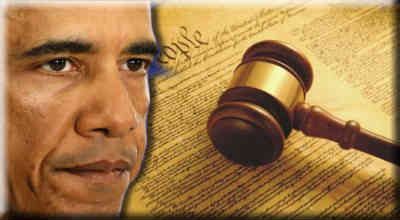| Online: | |
| Visits: | |
| Stories: |

| Story Views | |
| Now: | |
| Last Hour: | |
| Last 24 Hours: | |
| Total: | |
The ISIS Crisis And The Coming Tyranny
The U.S. Constitution and the principle of self-government are both designed above all to prevent Americans from being harmed by their own government
Canada Free Press

A significant number of conservatives are not only alarmed by the emergence of the Islamic State but also insist that President Obama take immediate military action to destroy them. But are the conservatives who urge the President to take unilateral action against ISIS throwing out bedrock conservative principles as they do so? The atrocities of the Islamic State are well-known: the mass-murder of Christians and Shiites, and the beheadings of two American journalists, to name a few.
Whether or not the U.S. military needs to do something about these atrocities is an excellent question, for the sake of national defense or the protection of the innocent in other countries. But if the answer to that question is yes, the U.S. Constitution requires that the U.S. Congress make a declaration of war. An executive decision on the part of the president to take action in either Syria or Iraq without such a declaration would represent a final transformation of our nation from a constitutional republic to an arbitrary government, acting on the whims of a single man.
The present crisis provides a good opportunity to review what the Constitution and the Founders had to say about who has the power to get the U.S. into war. The Constitution itself is straightforward, and would seem to require little elaboration: “The Congress shall have Power…To declare War.” The Founders of the U.S. left us with no doubt that Congress alone has the war power, and left us with plenty of reasons why this power was assigned to Congress not the President.
Thomas Jefferson stated that the Convention’s decision to transfer the power of getting the U.S. into war from the Executive to the Legislature acted as an “effectual check to the dog of war” (Letter to Madison, 1789). It acted as a check, because the decision would be in the hands of the representatives of the people, that is, in the hands of those “those who are to pay” with their lives and treasure if the nation goes to war.
James Wilson likewise viewed this power of Congress as being “calculated to guard against” the U.S. hurrying into war. No “single man, or a single body of men” had the power to involve the U.S. in “such distress.” Only the “legislature at large,” the Senate and House of Representatives, possesses this power. The Senate must vote for war, and there must also be “the concurrence of the House of Representatives.” So long as we follow this procedure, “nothing but our national interest can draw us into war” (Pennsylvania Ratifying Convention, 1787)
Reposted with permission



